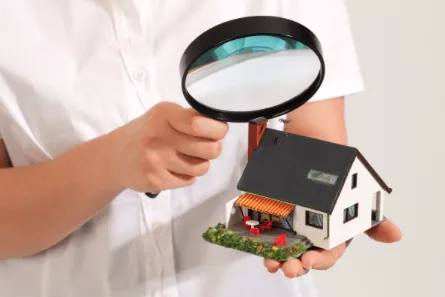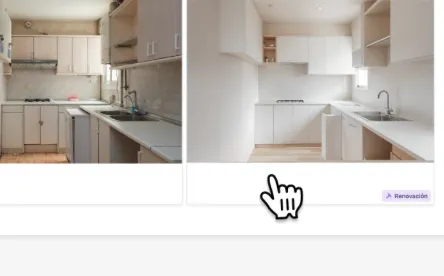Common mistakes to avoid when selling your house
Common mistakes when selling a house and how to avoid them: key tips for achieving a successful sale without losing money or time.
Selling a house can be one of the most important and often stressful processes in a person's life. Whether you're selling your first property or in the process of moving to a new one, it's crucial to approach this challenge with the right knowledge. Knowing the common mistakes when selling a house can make the difference between a quick and successful sale and a prolonged and frustrating process.
Many sellers face obstacles that could have been avoided with proper preparation and planning. From overpricing the property to neglecting presentation, these mistakes can cause your house to stay on the market longer than desired, or even result in losing money in the process. In this sense, identifying and understanding these mistakes will not only help you avoid setbacks but also give you the confidence needed to navigate the real estate market successfully.
The goal of this post is to offer you a clear overview of the most common mistakes made by house sellers and, most importantly, how to avoid them. By the end of this article, you'll have practical tools and strategies to ensure that your selling experience is as smooth and beneficial as possible. From initial preparation to closing the sale, every step counts.
Selling a house is a complex process that involves multiple decisions. However, there are common mistakes that many homeowners make, which can affect the sale of their property. Below, we detail some of the most frequent errors and their implications. Not Preparing the House for Sale Consequences of not making improvements:
When homeowners decide to sell their house, they often underestimate the importance of preparation. Not preparing the house can lead to several problems:
- Less Visual Appeal: Houses that aren't well-presented tend to discourage buyers. A cluttered or unattractive space can make a property seem less valuable than it really is.
- Reduced Sale Value: Buyers are willing to pay more for a property that presents well. If necessary improvements, such as painting, minor repairs, or landscaping improvements, aren't made, owners can lose a significant portion of their investment.
- Negative Perception: Houses that aren't clean or maintained can give the impression that there are hidden problems. This can generate distrust among buyers, which can affect the purchase decision.
To avoid this mistake, you can use our virtual home staging tool, making each room look as attractive as possible.
 Overpricing the Property
How to set the right price:
Overpricing the Property
How to set the right price:
One of the most common mistakes is overpricing the house. This error can result in a prolonged and frustrating sale. The consequences of setting a price too high include:
- Less Buyer Interest: An overpriced property can deter potential buyers from the start. If the price is too high, even interested parties might dismiss it without giving it a chance.
- Failed Negotiations: Buyers tend to make lower offers if they consider the initial price excessive. This can result in lengthy negotiations and, in many cases, a sale that won't materialize.
- Market Devaluation: The longer the property stays on the market, the more likely it is to be devalued in buyers' perception, which may force the owner to lower the price considerably.
To set the right price, it's recommended to conduct a professional valuation or a Comparative Market Analysis (CMA), which considers similar properties that have sold in the area. Not Hiring a Real Estate Agent Benefits of working with a professional:
Many homeowners think they can sell their house without the help of a real estate agent, but this can be a costly mistake. The benefits of working with a professional include:
- Experience and Market Knowledge: An agent has experience in the local real estate market and can provide valuable information about prices, trends, and areas of interest.
- Effective Marketing: Agents have access to marketing tools that allow them to promote the property more effectively, using platforms such as MLS (Multiple Listing Service), virtual home staging and more.
- Negotiation Management: A professional agent can handle negotiations with buyers, ensuring that the seller gets the best possible price and protecting their interests.
Don't underestimate the value that a good real estate agent can bring to the selling process. It's an investment that can result in a faster and more effective sale. Neglecting Presentation Importance of cleanliness and organization:
The presentation of the house is crucial in the selling process. Neglecting this aspect can have serious repercussions:
- First Impression: Buyers often decide if they like a house in the first few minutes of the visit. A clean and organized house can make a good impression that influences the purchase decision.
- Negative Distractions: A cluttered space can distract buyers from the positive features of the house. For example, excessive furniture can make a room appear smaller than it actually is.
- Missed Opportunities: If the house isn't presented well, buyers might quickly lose interest, and sales opportunities vanish.
It's fundamental to dedicate time to cleaning, decluttering, and organizing spaces before showing the house.
 Lack of Marketing Strategy
Channels and tactics to promote the property:
Lack of Marketing Strategy
Channels and tactics to promote the property:
A frequent mistake is not having an effective marketing strategy for selling the house. The consequences include:
- Low Visibility: If an adequate combination of marketing channels isn't used, the house may go unnoticed in a competitive market.
- Difficulty Attracting Buyers: Inadequate promotion can result in buyers not being aware of the property. This can include not using social media, online ads, or open house events.
- Less Success in Sales: Lack of marketing can result in slow sales and, eventually, a decrease in price.
To avoid this mistake, it's recommended to implement a real estate marketing plan that includes both digital and traditional strategies. Using virtual home staging to show the property attractively is one of the best ways to capture buyers' interest online. Not Conducting a Pre-Inspection Advantages of identifying problems before the sale:
Many homeowners omit the pre-inspection, which can lead to unpleasant surprises during the selling process. The consequences of not conducting this evaluation include:
- Hidden Problems: If issues such as structural damage, electrical or plumbing problems aren't identified, they may come to light during negotiation, which could cause buyers to withdraw.
- Unforeseen Costs: By not detecting problems before the sale, owners may face additional repair costs that could have been avoided.
- Negative Perception: If a buyer learns of significant problems after making an offer, they might feel disappointed or deceived, affecting trust in the seller.
Conducting a pre-inspection allows owners to address problems before they become an obstacle to the sale.
 Refusing to Negotiate
Negotiation strategies and flexibility:
Refusing to Negotiate
Negotiation strategies and flexibility:
Refusing to negotiate is another mistake that can cost a sale. The consequences of this attitude include:
- Missed Opportunities: Buyers often make lower offers as part of the negotiation process. Rejecting these offers without consideration can result in losing potential buyers.
- Prolonged Selling Process: If a seller is inflexible, it can make the sale last much longer than necessary, which can be frustrating for both parties.
- Negative Impression: Buyers may perceive a seller who isn't willing to negotiate as unreasonable, which can affect the overall perception of the property.
To avoid this mistake, it's essential to maintain an open and flexible attitude during the negotiation process. This can include considering different offers and being willing to discuss possible concessions that can facilitate the sale. How to Avoid These Mistakes When Selling a House
Selling a house can be a complicated process, but with proper preparation and strategies, you can avoid the most common mistakes. Here are several effective ways to mitigate these problems and optimize your selling experience. Prepare the House Effectively Tips for making improvements and virtual home staging :
Preparing the house is a crucial step that can make a big difference in buyers' perception. Here are some tips for preparing your house:
- Make Digital Visual Adjustments: Instead of immediate physical repairs, virtual home staging allows you to visually correct imperfections such as worn walls or cluttered areas, improving the image without large prior investments.
- Virtual Depersonalization: With virtual home staging, you can digitally remove excess furniture and personal items, creating a more neutral space that allows buyers to envision themselves in the property.
- Clean and Welcoming Environments: Through virtual home staging, it's possible to represent a deep cleaning without moving a single object, showing an impeccable house ready to live in.
- Virtual Professional Styling: Like traditional staging, but without the associated costs, virtual home staging allows you to show the house with modern decor, perfect lighting, and attractive distribution to highlight its best qualities.
- Digital Exterior Enhancement: Through editing techniques, it's possible to visually optimize the exterior of the house, adding elements like gardens or fixing the lawn without needing to make immediate physical changes.
 Value the Property Realistically
Methods to determine the fair price:
Value the Property Realistically
Methods to determine the fair price:
Setting the right price is fundamental to attract buyers. Here are some strategies to value your property realistically:
- Comparative Market Analysis (CMA): Research similar properties that have recently sold in your area. This analysis will give you an idea of current selling prices and help you establish a competitive price.
- Hire a Professional Appraiser: If you have doubts about the value of your house, consider hiring an appraiser. This expert will evaluate the property and provide a detailed report on its market value.
- Consider Market Trends: Inform yourself about real estate market trends in your area. If it's a seller's market, you might be able to set a higher price, but in a buyer's market, a lower price may be necessary to attract interest.
- Evaluate Unique Features: Consider the unique features of your property, such as a recent renovation, location, or additional services. These factors can justify a higher price if they are attractive to buyers. Choose a Good Real Estate Agent What to look for in an agent:
A real estate agent can be a great ally in the selling process. Here are some tips on how to choose the right one:
- Local Experience: Look for an agent with experience in the local real estate market. They will have in-depth knowledge of the area and can offer you valuable information about price trends and areas of interest.
- References and Reviews: Ask friends or family if they can recommend an agent. Also, look for online reviews to assess other clients' satisfaction.
- Effective Communication: It's important to choose someone who communicates well and is available to answer your questions. A good agent should be proactive in keeping you informed about the progress of the sale.
- Marketing Strategies: Ask about the agent's marketing approach. A good agent should have a solid plan to promote your property, using both digital marketing and traditional methods.
- Trust and Compatibility: It's crucial that you feel comfortable with the agent. Trust in their ability to handle the sale of your house is essential for a positive experience. Improve the Presentation of the House Virtual home staging techniques:
An effective presentation can make your house stand out in the market. Here are some home staging techniques:
- Use Neutral Colors: Painting walls with neutral colors can help buyers feel more comfortable. Soft tones allow potential buyers to visualize their personal style in the space.
- Optimize Lighting: Make sure each room is well-lit. Open curtains, turn on lights, and consider adding additional lamps to highlight spaces.
- Strategic Furniture: Arrange furniture in a way that facilitates the flow of movement and highlights the best features of the house. Avoid clutter and choose pieces that complement the space.
- Create Attractive Environments: Decorate with elements that make each room feel cozy. Conduct Pre-Inspections and Repairs Which areas to check and how to proceed:
Conducting a pre-inspection can help you address problems before they become obstacles. Here are some tips:
- Structure Inspection: Check the integrity of the structure, looking for signs of damage to foundations, roofs, and walls. Consider hiring a professional inspector for a more thorough evaluation.
- Plumbing and Electrical Systems: Make sure the plumbing and electrical systems are working correctly. Check for leaks, dripping faucets, and non-functioning outlets.
- Heating and Air Conditioning Systems: Check the operation of heating and air conditioning systems. If they are old or inefficient, consider replacing or repairing them before the sale.
- Check the Roof: Inspect the roof for damaged shingles or signs of leaks. A roof in good condition is an attractive point for buyers.
- Make Minor Repairs: Address any minor repairs you can, such as fixing holes in walls or replacing damaged faucets. This can improve the perception of the property.
 Be Flexible in Negotiation
Tips for accepting offers and making counteroffers:
Be Flexible in Negotiation
Tips for accepting offers and making counteroffers:
Flexibility in negotiation is key to closing the sale. Here are some strategies:
- Listen and Consider Offers: Keep an open mind and consider all offers you receive. Even if the initial offer isn't what you hoped for, there may be room for negotiation.
- Know Your Limit: Have a minimum acceptable price in mind, but don't be afraid to compromise if it means you can close the deal.
- Be Reasonable in Counteroffers: When making a counteroffer, ensure it's reasonable and justified. Justify your price with market data or unique features of the property.
- Maintain Open Communication: Fluid communication between you and your agent, as well as with buyers, can facilitate the negotiation process. Keep a positive and professional attitude.
- Consider Other Conditions: Don't just focus on the price. Consider other conditions that may be attractive, such as closing timelines or inclusion of furniture.
With Pedra , selling a house is easier and more effective. Thanks to our specialized tools, we help you avoid common mistakes and maximize the appeal of your property.

Related Posts
Top 7 AI Room Decoration Tools for 2025
Discover the best AI room decoration software for 2025. Our review compares top tools to help you de...
9 Curb Appeal Ideas on a Budget That Actually Work (2025)
Transform your home's exterior with our top curb appeal ideas on a budget. Get easy, high-impact tip...
10 Essential Curb Appeal Improvements for 2025
Discover 10 essential curb appeal improvements to boost property value. This guide for real estate p...